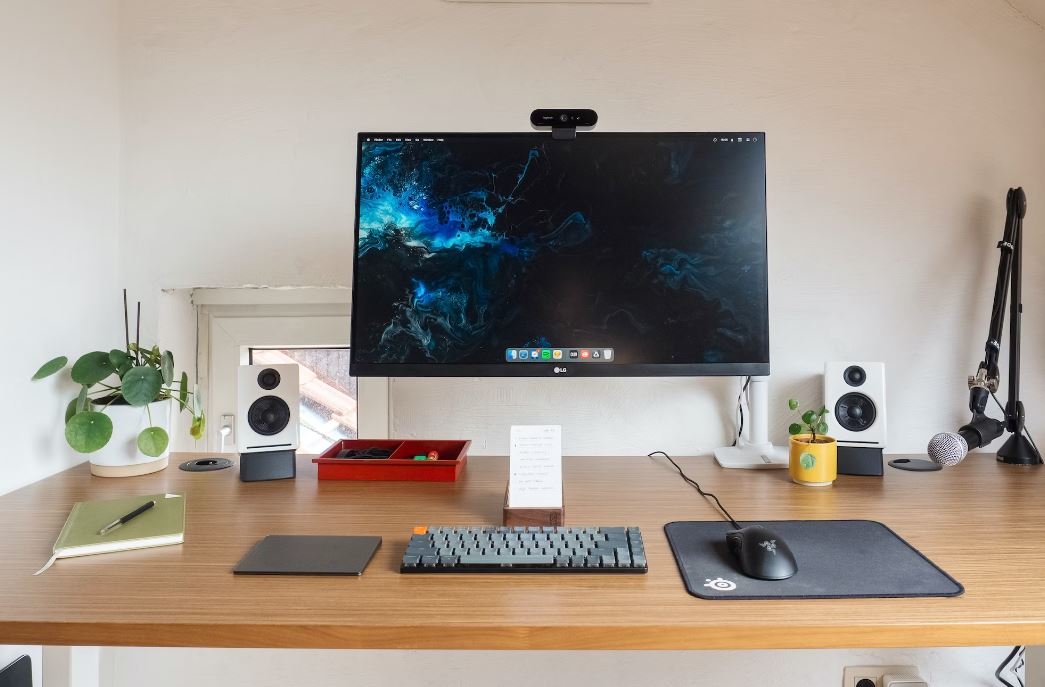No Code Bootcamp: Unlock Your Coding Potential without Writing a Single Line of Code
Are you interested in learning how to build websites and apps, but intimidated by the idea of coding? Good news! No Code Bootcamps are revolutionizing the tech industry by providing a way for anyone, regardless of their coding background, to learn and develop their skills without the need for traditional programming languages. In this article, we will explore the concept of No Code Bootcamps, their benefits, and how they are transforming the way people enter the tech industry.
Key Takeaways:
- No Code Bootcamps make it possible for anyone to develop web and app-building skills without learning traditional programming languages.
- These bootcamps offer a range of courses and resources to provide students with the knowledge and tools they need to create high-quality products.
- No Code Bootcamps are accessible to individuals with diverse backgrounds, allowing for greater inclusivity and diversity in the tech industry.
- Graduates of No Code Bootcamps can pursue careers as web and app designers, entrepreneurs, and product managers.
- The demand for professionals with no-code skills is rapidly growing in various industries, offering ample job opportunities.
**No Code Bootcamps** provide individuals with an alternative path to becoming tech-savvy problem solvers. These bootcamps teach students to build websites and applications using visual interfaces and pre-built templates, eliminating the need to write code manually. In just a few weeks or months, participants can acquire the skills and knowledge needed to create complex and visually stunning digital products.
*The best part? No coding experience is required!* Individuals from all walks of life can benefit from No Code Bootcamps, whether they are complete beginners or experienced professionals looking to expand their skill set. With a growing number of bootcamps available, aspiring entrepreneurs, freelancers, and creative professionals can easily find a program tailored to their specific needs and goals.
**Why choose a No Code Bootcamp?** They offer comprehensive courses and resources that cover various aspects of web and app development, including design, user experience, and product management. These bootcamps often focus on teaching popular no-code platforms such as Webflow, Bubble, Adalo, and Airtable, providing hands-on experience-building real-world projects.
*Moreover, joining a No Code Bootcamp allows you to join a supportive community of individuals with similar interests and goals.* Collaborating with like-minded people can be invaluable as you navigate your learning journey and beyond.
Transforming the Tech Industry
No Code Bootcamps are transforming the tech industry by **breaking down barriers to entry** and fostering inclusivity. By removing the requirement for coding knowledge, these bootcamps make tech education more accessible to individuals who may not have considered a career in programming otherwise. This creates opportunities for diverse talents and perspectives to enter the industry, resulting in more inclusive and innovative products.
Interested in a career change? No Code Bootcamps can help you acquire the skills needed to transition into the tech industry. Many bootcamps offer career support services, such as resume review, interview coaching, and network connections, allowing you to tap into job opportunities within the tech space.
| Bootcamp | Duration | Price |
|---|---|---|
| No Code Academy | 10 weeks | $2,500 |
| Makerpad | 6 months | $499 |
Aside from personal development, joining a No Code Bootcamp can open doors to a range of career options. Graduates can pursue roles as **web and app designers, entrepreneurs, and product managers**. With the rise of technology and increasing demand for digital products, these skills have become highly sought after in today’s job market.
*The demand for professionals with no-code skills is growing rapidly across various industries.* This trend is particularly prominent in startups and small businesses, where limited resources necessitate efficient solutions. By acquiring no-code skills, you position yourself for a variety of career opportunities and paths.
| No Code Platform | Application | Features |
|---|---|---|
| Webflow | Website Design and Development | Responsive layouts, animations, e-commerce integrations |
| Bubble | Web App Development | Database-driven applications, user authentication, workflows |
Whether you aspire to build the next big startup or simply want to enhance your digital skills, No Code Bootcamps provide an excellent starting point. With their accessible and practical approach to learning, these bootcamps empower individuals to create and innovate without being constrained by programming languages. Embrace the no-code revolution and unlock your coding potential today!

No Code Bootcamp
Common Misconceptions
There are several common misconceptions surrounding the concept of a No Code Bootcamp. Let’s explore some of them:
Misconception 1: No Code Bootcamps aren’t as effective as traditional coding bootcamps
Despite the skepticism, No Code Bootcamps can be just as effective in teaching individuals how to build functional and visually appealing web and mobile applications.
- No Code Bootcamps focus on teaching fundamental principles of design and user experience.
- No Code Bootcamps promote rapid prototyping and iteration to refine ideas.
- No Code Bootcamps offer market-ready tools that can be utilized in various industries.
Misconception 2: No Code Bootcamps are only for non-technical individuals
Contrary to popular belief, No Code Bootcamps are not limited to individuals without technical backgrounds. They can benefit anyone who wants to quickly develop web or mobile applications without diving deeply into coding.
- No Code Bootcamps empower creative professionals to turn their ideas into reality without relying on developers.
- No Code Bootcamps provide coding professionals an alternative approach for rapid prototyping.
- No Code Bootcamps help entrepreneurs and business owners to launch their products faster.
Misconception 3: No Code Bootcamps limit customization and flexibility
Another common misconception is that No Code Bootcamps restrict customization options and lack the flexibility of traditional coding. In reality, No Code platforms often offer various customization capabilities.
- No Code Bootcamps teach how to leverage the flexibility of visual design tools to achieve unique designs.
- No Code Bootcamps demonstrate how to integrate custom code snippets to enhance functionality.
- No Code Bootcamps teach how to utilize APIs to connect with external services and create custom features.
Misconception 4: No Code Bootcamps produce low-quality applications
Many assume that applications built using No Code platforms lack quality compared to those constructed with traditional coding. However, this is not necessarily the case.
- No Code Bootcamps emphasize user testing and validation to produce high-quality applications.
- No Code Bootcamps teach techniques to optimize performance and ensure a smooth user experience.
- No Code Bootcamps promote collaboration and learning from experienced No Code practitioners for better outcomes.
Misconception 5: No Code Bootcamps are only relevant in certain industries
It is often believed that No Code Bootcamps are only applicable in specific industries and not suitable for others. However, the versatility of No Code platforms makes them relevant in various fields.
- No Code Bootcamps equip individuals with the skills to create websites, e-commerce stores, and applications for any industry.
- No Code Bootcamps enable professionals to create personalized digital experiences in sectors like healthcare, real estate, and education.
- No Code Bootcamps support entrepreneurs in building startups across multiple industries with minimal technical barriers.

Table of Top Programming Languages in 2021
In a rapidly evolving digital landscape, it is essential to stay up-to-date with the most popular programming languages. The following table showcases the top programming languages for 2021 based on their usage and community support.
| Rank | Language | Usage |
|---|---|---|
| 1 | Python | 35.5% |
| 2 | JavaScript | 30.7% |
| 3 | Java | 15.0% |
| 4 | C++ | 6.7% |
| 5 | C# | 4.8% |
| 6 | PHP | 2.6% |
| 7 | Swift | 2.3% |
| 8 | TypeScript | 1.7% |
| 9 | C | 1.6% |
| 10 | Ruby | 1.5% |
Table of Most Visited Websites in the World
Understanding the browsing habits of users worldwide is crucial for web development and marketing strategies. The table below presents the most visited websites globally, providing insights into the digital landscape.
| Rank | Website | Monthly Visits (in billions) |
|---|---|---|
| 1 | 92 | |
| 2 | YouTube | 34.6 |
| 3 | 25.5 | |
| 4 | Amazon | 21.6 |
| 5 | Baidu | 17.3 |
| 6 | 7.8 | |
| 7 | 6.7 | |
| 8 | 5.7 | |
| 9 | Netflix | 4.9 |
| 10 | Yahoo | 3.8 |
Table of Biggest Tech Companies by Market Capitalization
Tracking the market capitalization of technology companies provides insights into the most influential players in the industry. The table below highlights the biggest tech companies based on their market capitalization as of 2021.
| Rank | Company | Market Cap (in billions of dollars) |
|---|---|---|
| 1 | Apple | 2,446 |
| 2 | Microsoft | 1,820 |
| 3 | Amazon | 1,616 |
| 4 | Alphabet | 1,449 |
| 5 | Tencent | 740 |
| 6 | 752 | |
| 7 | Tesla | 712 |
| 8 | NVIDIA | 473 |
| 9 | Visa | 453 |
| 10 | PayPal | 312 |
Table of Global Smartphone Sales by Brand
Understanding the popularity and market share of smartphone brands is crucial for both consumers and manufacturers. The following table showcases the global smartphone sales by brand, giving an overview of the industry.
| Rank | Brand | Market Share |
|---|---|---|
| 1 | Samsung | 16.3% |
| 2 | Apple | 14.8% |
| 3 | Xiaomi | 11.2% |
| 4 | Oppo | 8.9% |
| 5 | Huawei | 8.8% |
| 6 | Vivo | 6.7% |
| 7 | Realme | 4.8% |
| 8 | Lenovo | 4.3% |
| 9 | LG | 3.2% |
| 10 | 2.9% |
Table of Highest-Grossing Movies of All Time
Hollywood movies have always captivated audiences worldwide, and the table below showcases the highest-grossing films of all time. This data takes into account box office revenue and provides an idea of the movies that have resonated most with the public.
| Rank | Movie | Total Revenue (in billions of dollars) |
|---|---|---|
| 1 | Avengers: Endgame | 2.798 |
| 2 | Avatar | 2.790 |
| 3 | Titanic | 2.194 |
| 4 | Star Wars: The Force Awakens | 2.068 |
| 5 | Avengers: Infinity War | 2.048 |
| 6 | Jurassic World | 1.670 |
| 7 | The Lion King (2019) | 1.657 |
| 8 | The Avengers | 1.518 |
| 9 | Furious 7 | 1.516 |
| 10 | Avengers: Age of Ultron | 1.402 |
Table of World’s Tallest Buildings
The architectural wonders that reach the sky continue to inspire awe. The following table presents the world’s tallest buildings, showcasing human engineering achievements and innovation.
| Rank | Building | Height (in meters) |
|---|---|---|
| 1 | Burj Khalifa (Dubai, UAE) | 828 |
| 2 | Shanghai Tower (Shanghai, China) | 632 |
| 3 | Abraj Al-Bait Clock Tower (Mecca, Saudi Arabia) | 601 |
| 4 | One World Trade Center (New York City, USA) | 541 |
| 5 | Taipei 101 (Taipei City, Taiwan) | 508 |
| 6 | Shanghai World Financial Center (Shanghai, China) | 492 |
| 7 | International Commerce Centre (Hong Kong, China) | 484 |
| 8 | Central Park Tower (New York City, USA) | 472 |
| 9 | Lotte World Tower (Seoul, South Korea) | 555 |
| 10 | One Vanderbilt (New York City, USA) | 427 |
Table of World Population by Continent
Understanding the distribution of the world’s population across continents is crucial for various aspects, including resource allocation and policymaking. The following table presents the world population divided by continent, providing insights into global demographics.
| Continent | Population (in billions) | % of Global Population |
|---|---|---|
| Asia | 4.6 | 59.7% |
| Africa | 1.3 | 16.8% |
| Europe | 0.7 | 9.2% |
| North America | 0.6 | 7.8% |
| South America | 0.4 | 5.2% |
| Oceania | 0.05 | 0.6% |
| Antarctica | 0.001 | 0.01% |
Table of Top Olympic Medal-Winning Countries
The Olympic Games celebrate the achievements of athletes from around the globe. The following table showcases the countries with the most Olympic medals, representing their sporting prowess and dedication to excellence.
| Rank | Country | Total Olympic Medals |
|---|---|---|
| 1 | United States | 2,825 |
| 2 | Soviet Union | 1,204 |
| 3 | Germany | 1,065 |
| 4 | Great Britain | 883 |
| 5 | China | 785 |
| 6 | France | 780 |
| 7 | Italy | 737 |
| 8 | Sweden | 652 |
| 9 | Australia | 497 |
| 10 | Russia | 493 |
Table of World’s Longest Rivers
Rivers have played a significant role in human history and continue to affect ecosystems and civilizations. The table below showcases the world’s longest rivers, displaying the impressive lengths that they span.





